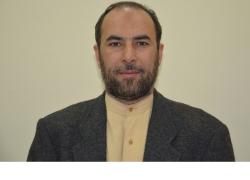How to choose the best Theoretical Framework for Phenomenological Research in Nursing Care?
Phenomenology is a qualitative research approach that focuses on exploring and understanding human experiences from the perspective of those who live them. However, it is important to maintain that Phenomenology is a broad philosophical and methodological approach and it doesn’t inherently have numerous specific “theories” in the same way that some other fields might. Instead, phenomenology provides a philosophical foundation and a set of principles that researchers can apply to study lived experiences. Nevertheless, within the realm of nursing phenomenological research, you can draw on various thinkers and approaches. Here, is a list of influential figures and frameworks that are often considered in phenomenological research in nursing:
1. Edmund Husserl’s Phenomenology:
- As the founder of phenomenology, Husserl’s work provides a foundational understanding of the philosophical underpinnings of phenomenology.
- His work, particularly “Logical Investigations” (1900-1901), laid the foundation for the phenomenological method, emphasizing the study of consciousness and the description of lived experiences.
- Researchers may draw on his ideas to explore the essence of nursing experiences and understand the phenomena as they are lived by individuals.
- This approach involves a systematic examination of consciousness and the description of phenomena as they appear in subjective experience.
- It encourages researchers to set aside preconceived notions and bracket assumptions to explore the essence of lived experiences.
- Using Husserlian phenomenology in nursing research involves a rigorous analysis of the subjective experiences of individuals involved in healthcare.
- Researchers employing this framework would seek to uncover the underlying structures and meanings of phenomena such as pain, caregiving, or patient-nurse interactions.
2. Heideggerian Phenomenology:
- Martin Heidegger, influenced by Husserl, presented existential and hermeneutic elements into phenomenology.
- He expanded on Husserl’s ideas, introducing existential and hermeneutic dimensions. “Being and Time” (1927) is his seminal work that explores the nature of being and the lived experience.
- Heideggerian phenomenology emphasizes the context of lived experiences, the temporality of being, and the concept of “Being-in-the-world.”
- It explores how individuals exist within their cultural, social, and historical contexts.
- Heideggerian phenomenology can be particularly valuable in nursing research by highlighting the situated nature of health and illness experiences. Researchers may investigate how individuals navigate their healthcare experiences within the broader context of their lives, relationships, and societal norms.
- Nursing researchers may use Heideggerian phenomenology to investigate how individuals experience health, illness, and care within their specific cultural and social contexts.
3. Maurice Merleau-Ponty’s Phenomenology:
- Maurice Merleau-Ponty’s phenomenology, developed in the mid-20th century, emphasizes the embodied nature of human perception and experience. His influential work, “Phenomenology of Perception” (1945), challenges the mind-body dualism, asserting that consciousness is inseparable from the lived body and that perception is an active, embodied engagement with the world.
- Merleau-Ponty extended and developed Husserl’s phenomenology, emphasizing the embodied nature of human experience.
- In nursing research, this perspective can be valuable for exploring the lived experiences of patients and healthcare providers in a holistic manner, considering the body as an integral part of the experience.
- Merleau-Ponty’s existential-phenomenological philosophy focuses on embodied experience and perception, emphasizing the inseparable connection between the body and consciousness.
- It is relevant in nursing research to explore the embodied experiences of patients, caregivers, or healthcare professionals in various healthcare contexts.
- In nursing, Merleau-Ponty’s phenomenology can be applied to investigate the experiences of nurses, or other healthcare participants, exploring the holistic and sensory dimensions of care.
- Merleau-Ponty’s phenomenology offers a holistic perspective, emphasizing the lived body as the center of perceptual experience and consciousness.
4. Jean-Paul Sartre’s Existential Phenomenology:
- Sartre’s existentialist philosophy, especially as presented in “Being and Nothingness” (1943), focuses on human freedom, choice, and responsibility.
- His existential phenomenology is grounded in existentialist philosophy and focuses on subjective human experience.
- Key concepts include existential freedom that emphasizes human freedom and the responsibility that comes with it, as individuals define their essence through choices.
- It acknowledges the anxiety and anguish that arise from the awareness of one’s freedom and the weight of personal responsibility.
- It describes the self-deceptive denial of one’s freedom and the adoption of societal roles, avoiding the anxiety of authentic choice.
- It explores the sense of despair that arises when individuals confront the apparent meaninglessness of existence and the responsibility to create their own meaning.
- It examines the interpersonal dimension, where individuals are objects of perception and judgment for others, affecting their self-conception.
- Sartre’s existential phenomenology provides a framework for understanding the human condition through the lens of radical freedom and the inherent challenges of creating meaning in a seemingly indifferent world.
- It can be applied to investigate the existential dimensions of health and illness experiences.
Considerations for Choosing a Framework:
- Research Question: The choice between Husserlian and Heideggerian phenomenology may depend on the specific research question. If the focus is on uncovering the essential structures of an experience, Husserlian phenomenology might be more suitable. If the emphasis is on understanding the lived experience within a broader context, Heideggerian phenomenology could be preferred. Choose a framework that aligns with the specific focus of your research question.
- Philosophical Orientation: Researchers should also consider their own philosophical orientation and theoretical preferences. Some may resonate more with the systematic and epistemological approach of Husserl, while others may appreciate the existential and interpretive focus of Heidegger. Consider your own philosophical stance and the underlying assumptions of each framework. Select a framework that resonates with your ontological and epistemological perspectives.
- Practical Considerations: The practical aspects of data collection and analysis, as well as the availability of resources and expertise, may influence the choice of framework. Researchers may also draw on elements from both approaches, depending on the needs of the study. Assess the practical implications of each framework in terms of data collection and analysis.
Ultimately, the choice of a theoretical framework for phenomenological research in nursing should align with the research goals, the nature of the phenomenon being explored, and the philosophical stance of the researcher. Both Husserlian and Heideggerian phenomenology offer rich possibilities for understanding and interpreting the lived experiences in the complex and multifaceted realm of healthcare.
Conclusion
When selecting a theoretical framework for phenomenological nursing research, it’s important to carefully consider the nature of the phenomenon under investigation and the philosophical principles that guide the chosen approach. Researchers often integrate elements from multiple theorists to create a nuanced and comprehensive understanding of nursing experiences.
These references provide a starting point for understanding the foundational works in phenomenology. Keep in mind that phenomenology is more about a philosophical stance and methodological approach than a set of discrete theories.
References:
- Heidegger, M. (2010). Being and time. Suny Press.
- Husserl, E. (1900-1901). Logical Investigations.
- Merleau-Ponty, M. (2010). Phenomenology of Perception (D. Landes, Trans.; 1st ed.). Routledge.
- Sartre, J.-P. (1945). Being and Nothingness: Routledge & Kegan Paul.


















